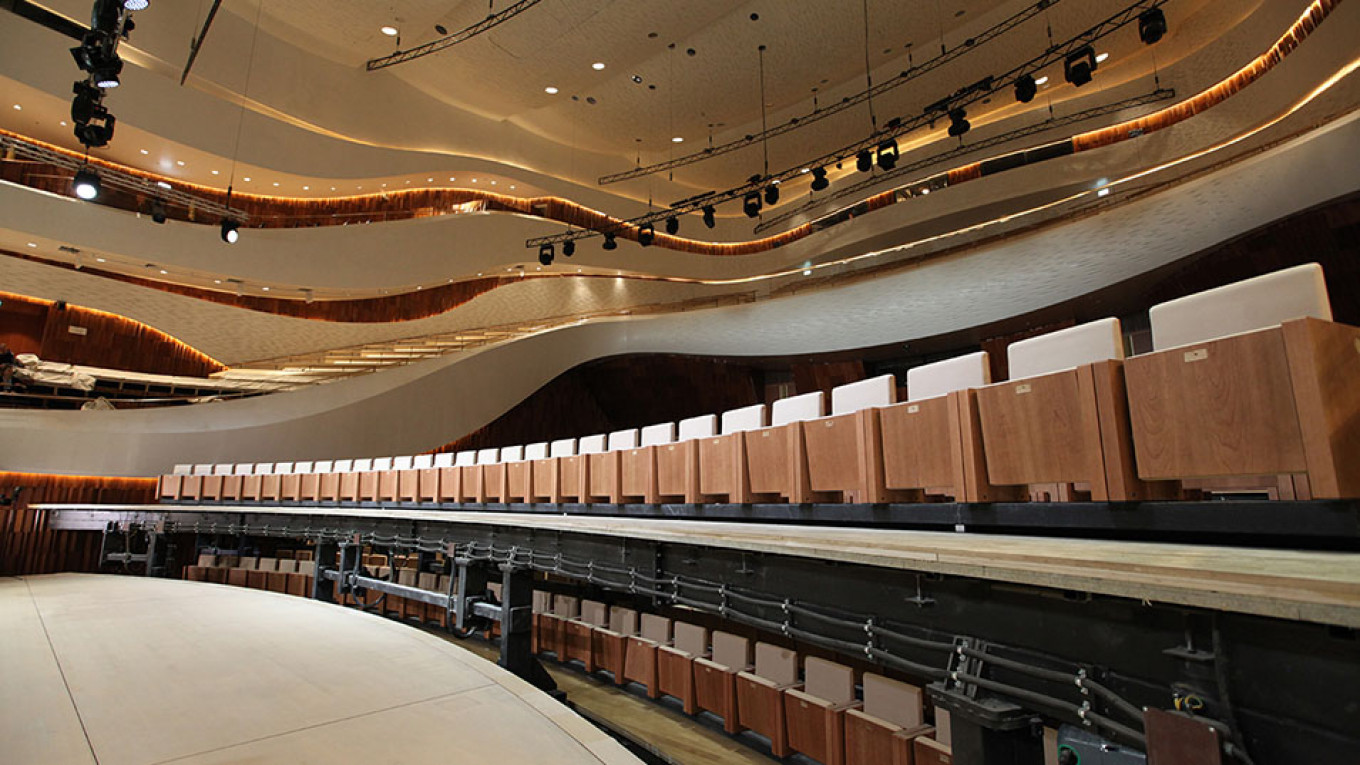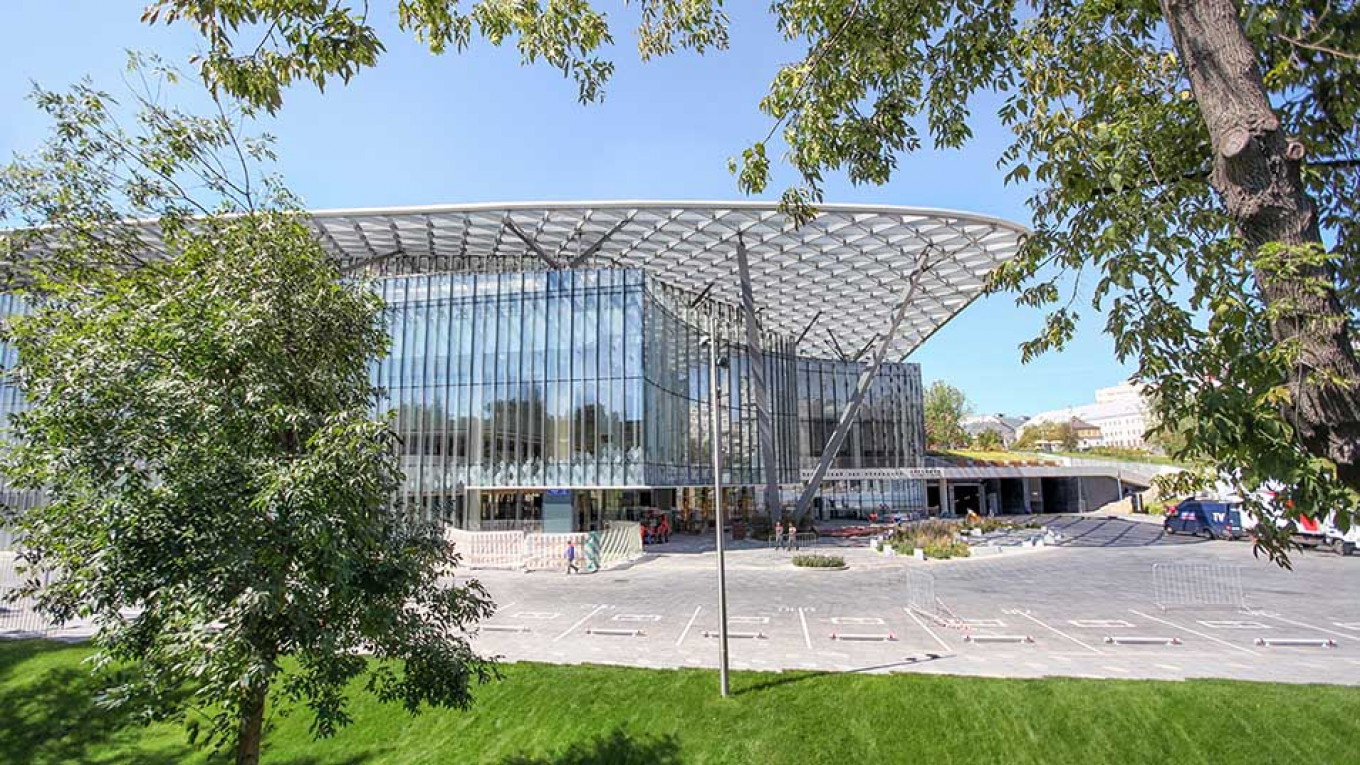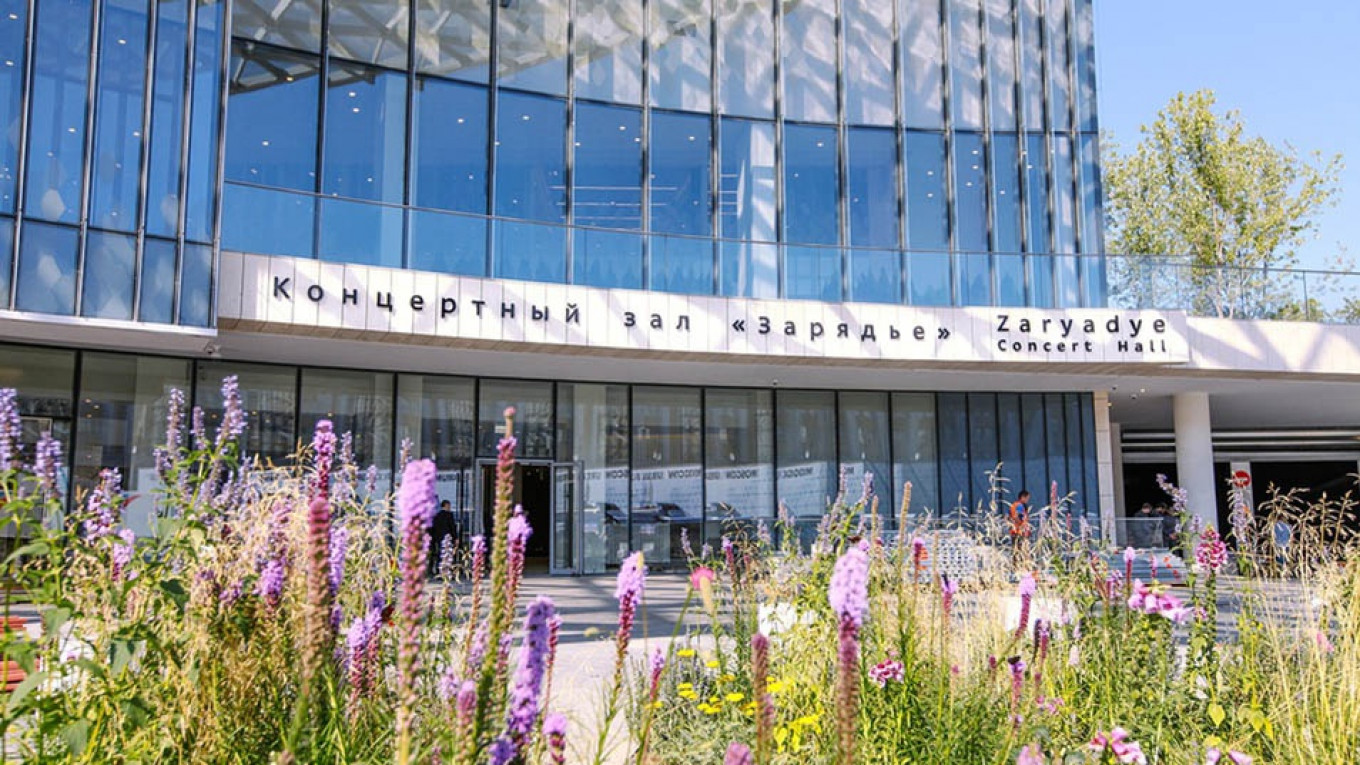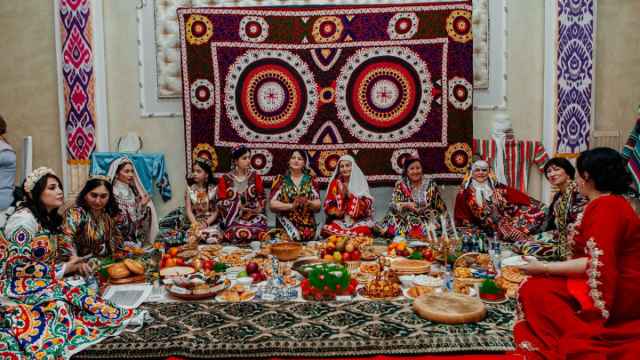If you’ve been to Moscow’s latest park, Zaryadye, or even seen it from across the river, you probably marveled at the giant tortoise-shell shaped glass structure that dominates the eastern side of the space. You might have even wandered under the half of it that covers the landscaped semi-enclosed greenhouse, whose botanical tenants require protection from the harsher days of Moscow’s winters. The other half forms the roof of what will soon be Moscow’s newest concert hall, set to have its triumphal opening on September 8 with an invitation-only concert by Valery Gergiev and the Mariinsky Orchestra.
A hall for the 21st century
Like Zaryadye itself, this shining, modern concert hall was designed to show that Moscow not only has moved into the 21st century, but that it is on par with Western Europe. The general director of the hall, Olga Zhukova, told The Moscow Times that “it’s an international hall, like the Elbphilharmonie, like the Paris Philharmonie.” Those two halls, in Hamburg, Germany and the French capital, both opened in the last three years with lots of media coverage from the international press. The Elbphilharmonie, which dominates the city’s waterfront, aims to be as much of an icon for Hamburg as the Guggenheim is for Bilbao, or the Opera House is for Sydney.
The Zaryadye Concert Hall, designed by the Moscow-based “Reserve” design firm and Moscow’s chief architect Sergei Kuznetsov, does not have such a commanding presence as its European counterparts with its entrance facing the northeast corner of the park, somewhat hidden behind the giant greenhouse-hill. With the other dazzling attractions in the park, including a triangular “bridge” hovering over the Moscow river and a giant open amphitheater, the hall could easily be passed by unnoticed.
Inside, the hall is sleek and modern, if also somewhat subdued, featuring swooping lines, recessed lighting and cushy seats that recline slightly when you sit down. Taking a cue from the Paris and Hamburg halls, rather than having a stage in front, Zaryadye has its seats surrounding the stage, which allows viewers to be closer to the performers. It feels beguilingly intimate for a venue with a capacity for an audience of 1,560.

Sound is supreme
The main selling point of the hall, and what sets it apart from Moscow’s other many classical music venues, is the acoustics. The venue hired the Japanese acoustician Yasuhisa Toyota (who also worked on the Elbphilharmonie) to make the hall sound spectacular. The Russian bass singer Nikolai Didenko, who sang in the hall during acoustics tests, praised the hall’s sound. “It’s very comfortable to sing here," he said. "I can hear myself very well.” Mikhail Pletnev brought the Russian National Orchestra to help with the tests as well. They performed works with musicians arrayed in various arrangements on the stage, parts of which were raised or lowered to affect the sound. He mused on the “number of opportunities here and experiments with sound,” that were possible, adding that “we will try a number of different things, and get the best sound.”
Of course, great acoustics would be worthless without great musicians. So far the schedule for the fall looks to fit the bill with big-name artists such as the pianist Daniil Trifonov, the violinist Joshua Bell with the Academy of St. Martin in the Fields, and MusicAeterna, conducted by the ever sold-out Teodor Currentzis.
Each concert is given one of nine “hashtags,” which, on the website (currently in Russian-only), one can filter by. This social-media inspired system allows viewers who wish to only attend, say, baroque concerts to limit their search to that genre. Buying tickets to four or more concerts with the same hashtag earns a 20-percent discount. The list of hashtags shows an impressively wide variety of genres people will be able to choose from: classical; baroque; opera; jazz; knowledge (lectures); mood (concerts include a balalaika performer and the Harlem Gospel Choir); new music; children's concerts; and ethnic. Sometimes the system is less than clear, with one all-Prokofiev concert tagged as new music, while another was filed as classical.
In addition to the main hall, there is also a smaller hall seating 400 and a recording studio.
If there’s one mission Olga Zhukova wants the hall to serve, it is to attract more young people to classical music. “I’d like to see more people of the younger generation who love classical music,” she told The Moscow Times, citing the program of the hall as a form of outreach. With concerts spanning a number of genres, tickets starting from 500 rubles, and none of the musty odor of the Tchaikovsky conservatory, Zaryadye may be on the right path.
Information can be found at the hall site. The schedule and online ticket purchases can be found here.

A Message from The Moscow Times:
Dear readers,
We are facing unprecedented challenges. Russia's Prosecutor General's Office has designated The Moscow Times as an "undesirable" organization, criminalizing our work and putting our staff at risk of prosecution. This follows our earlier unjust labeling as a "foreign agent."
These actions are direct attempts to silence independent journalism in Russia. The authorities claim our work "discredits the decisions of the Russian leadership." We see things differently: we strive to provide accurate, unbiased reporting on Russia.
We, the journalists of The Moscow Times, refuse to be silenced. But to continue our work, we need your help.
Your support, no matter how small, makes a world of difference. If you can, please support us monthly starting from just $2. It's quick to set up, and every contribution makes a significant impact.
By supporting The Moscow Times, you're defending open, independent journalism in the face of repression. Thank you for standing with us.
Remind me later.






